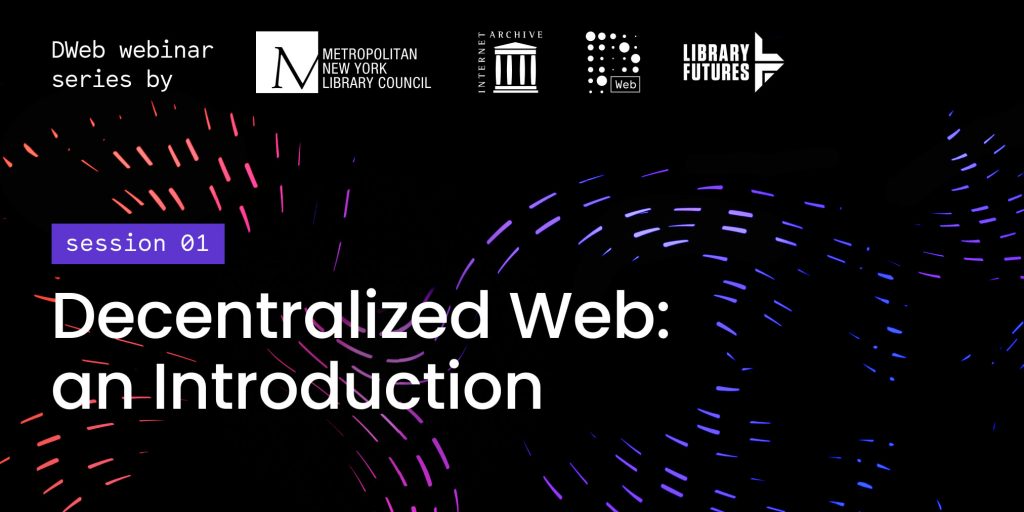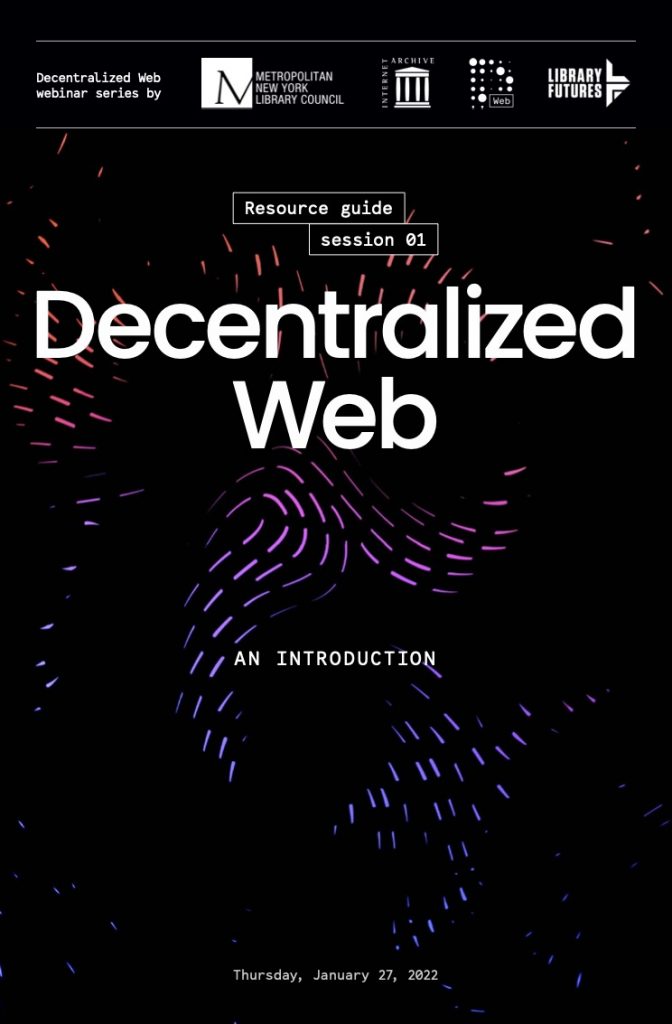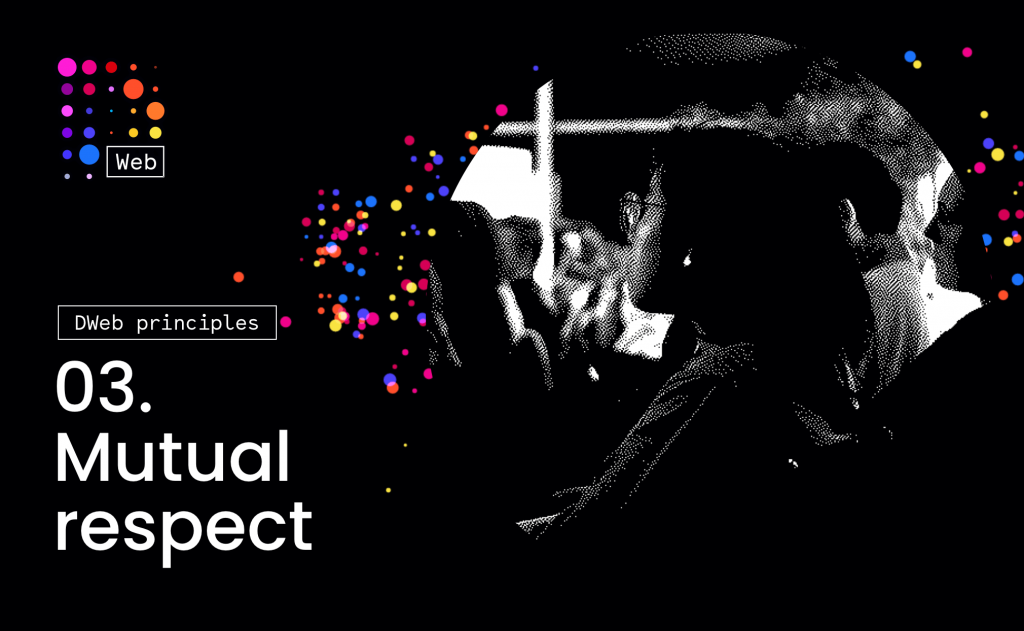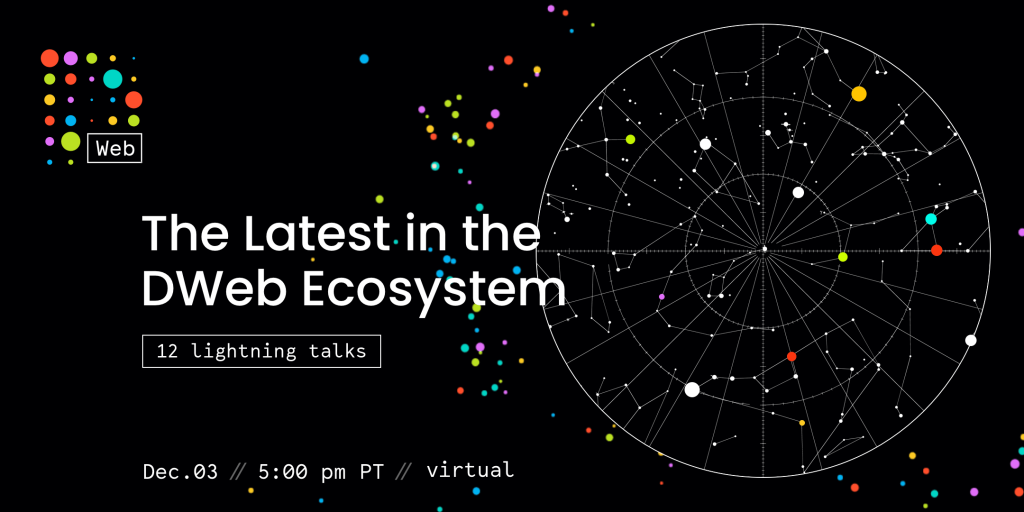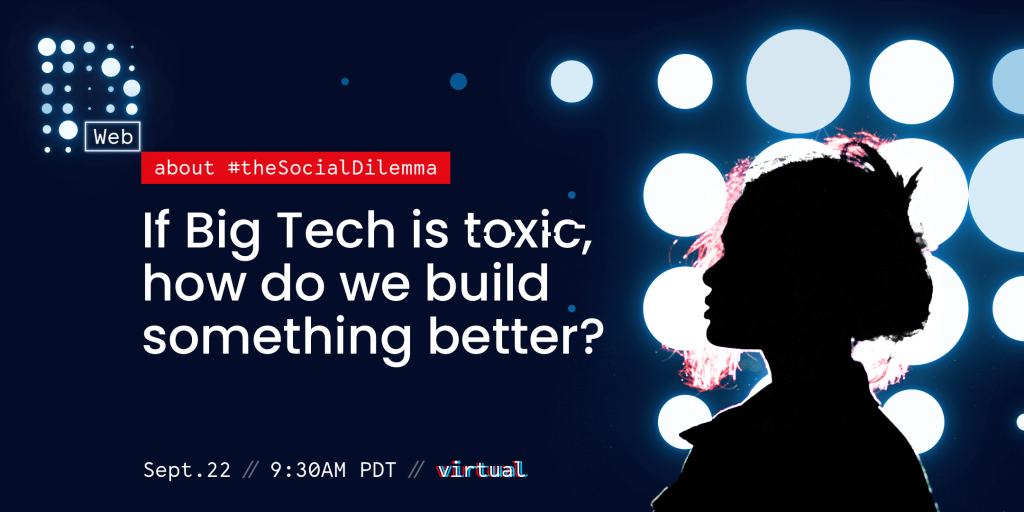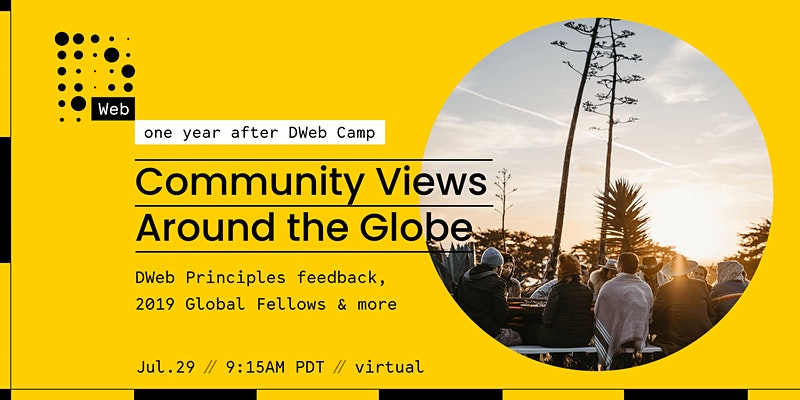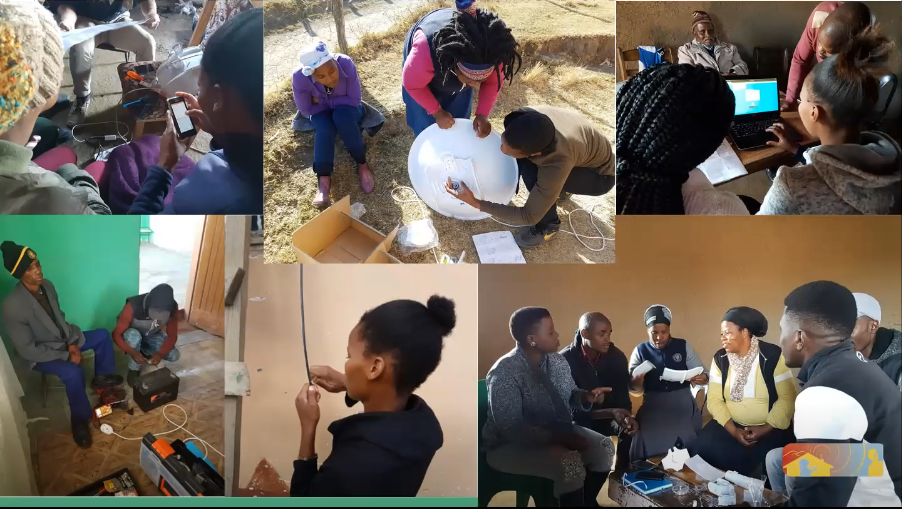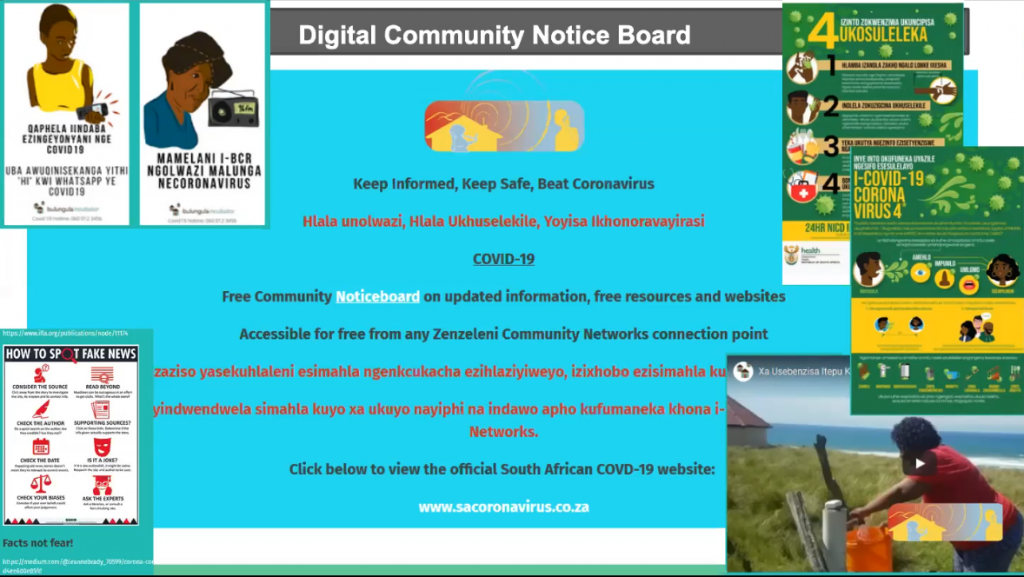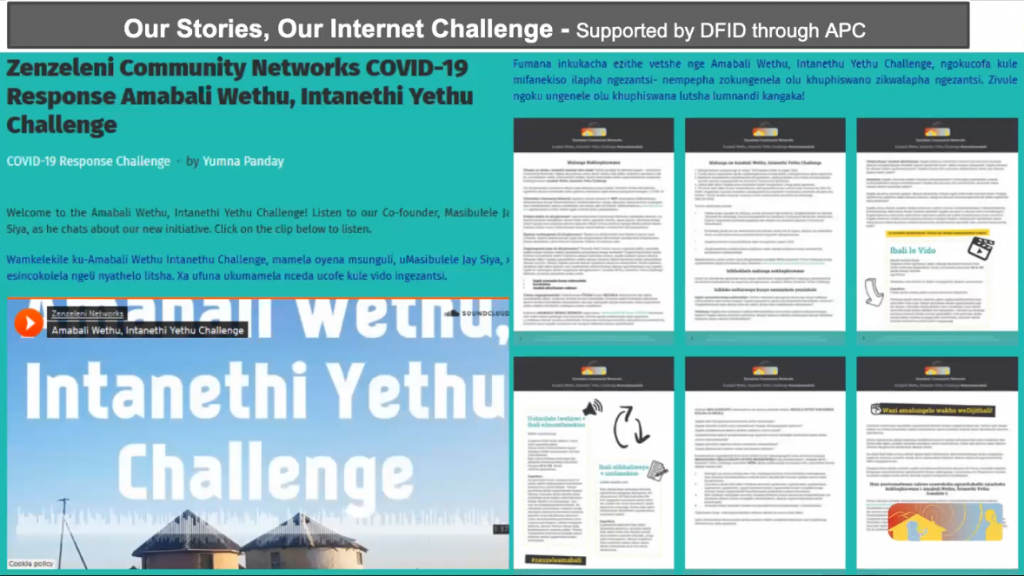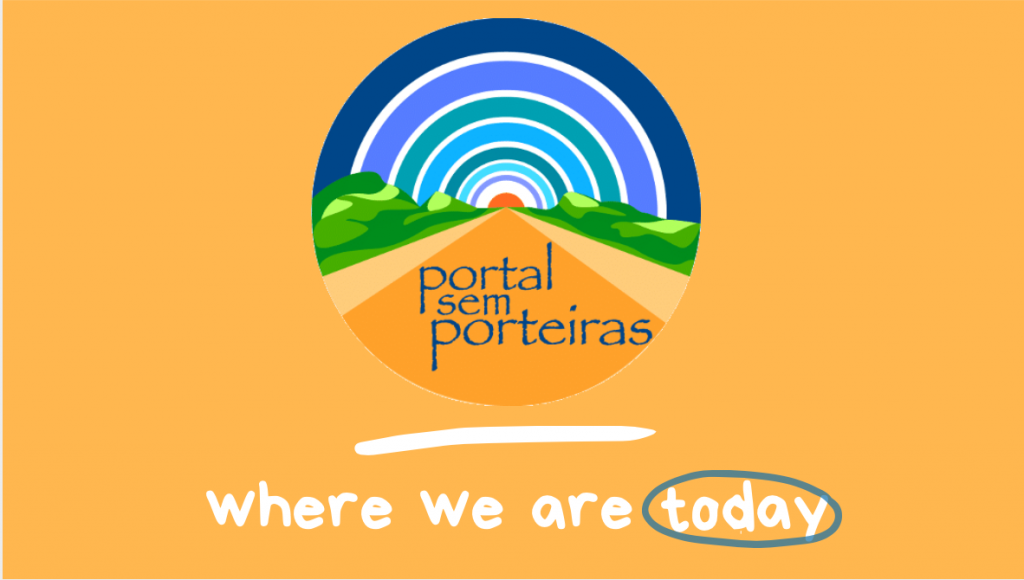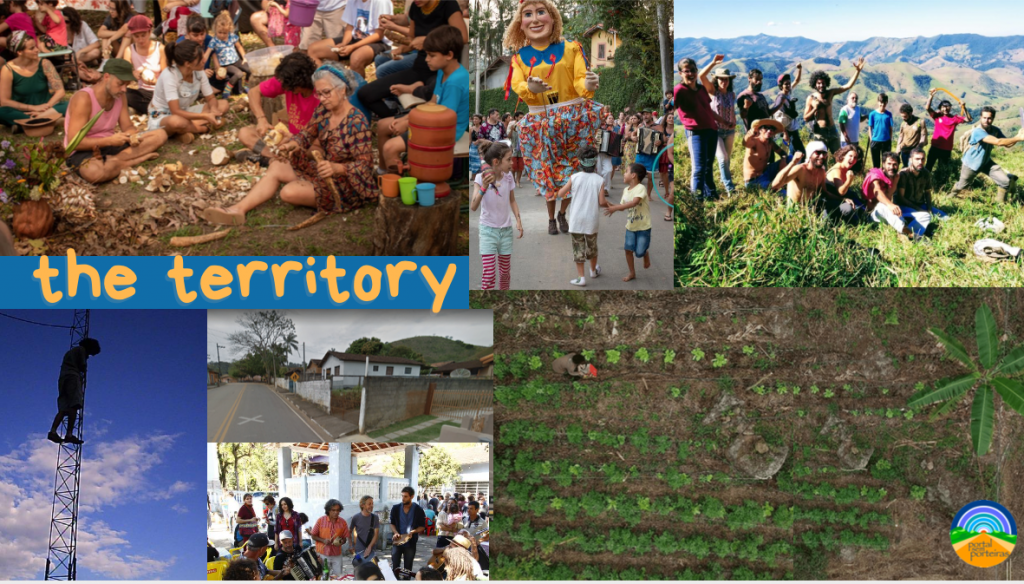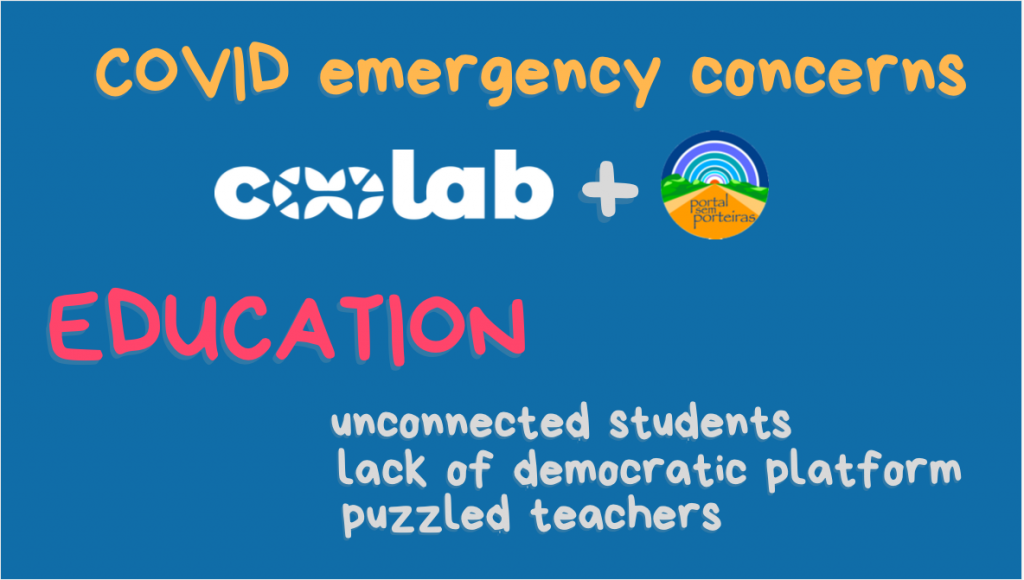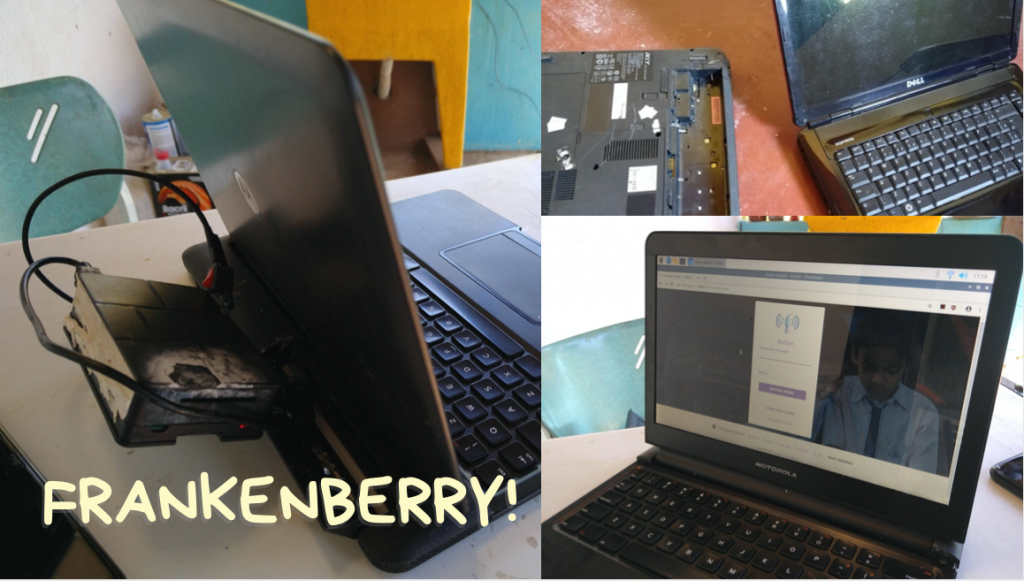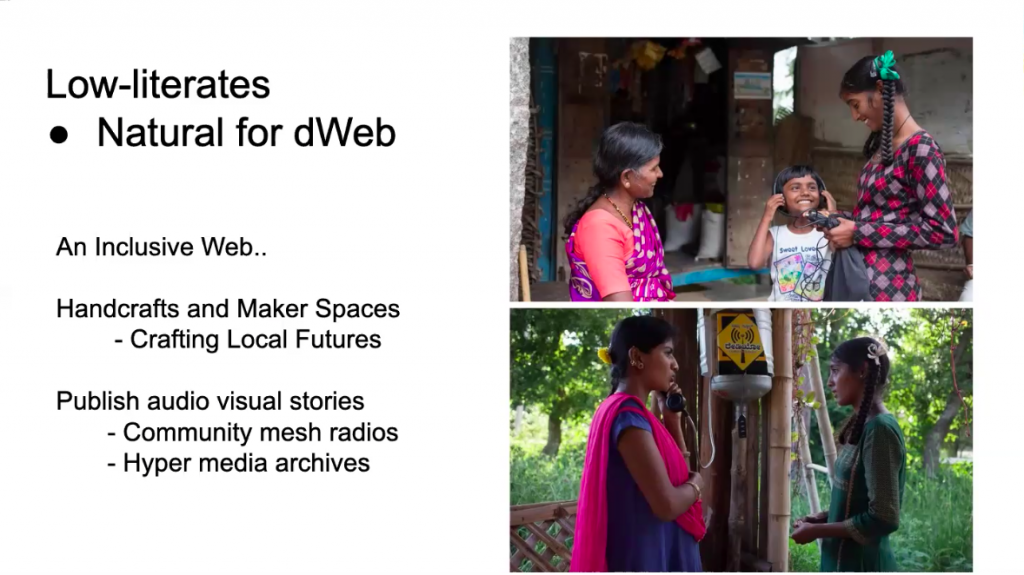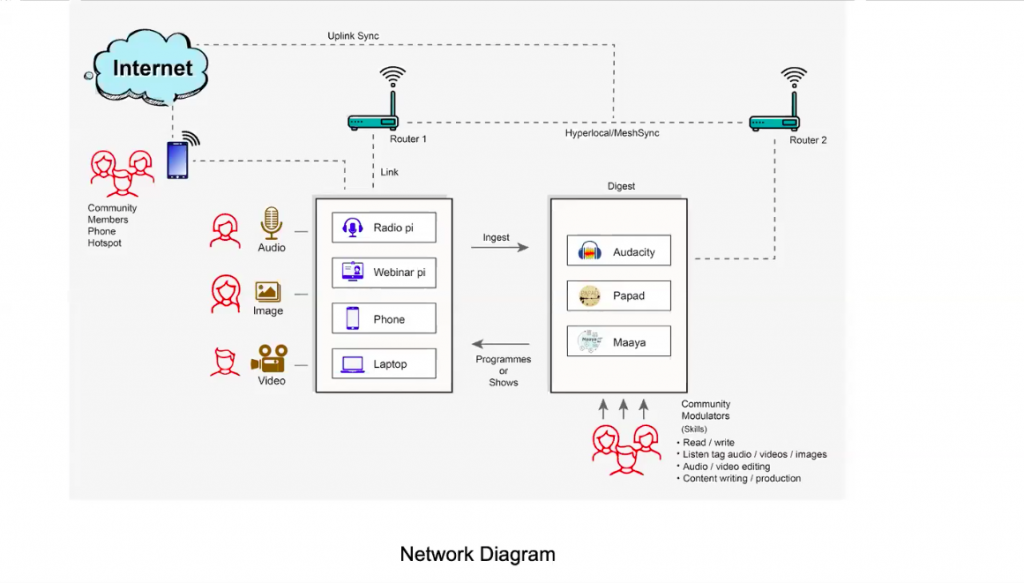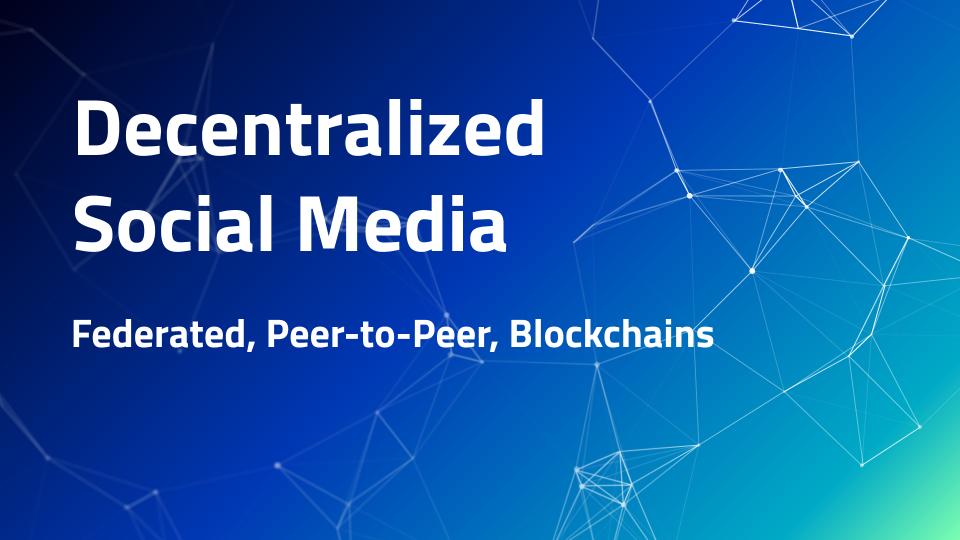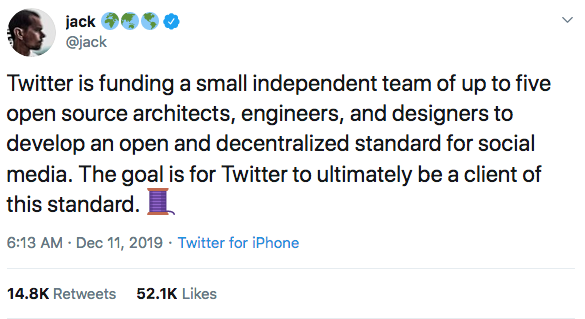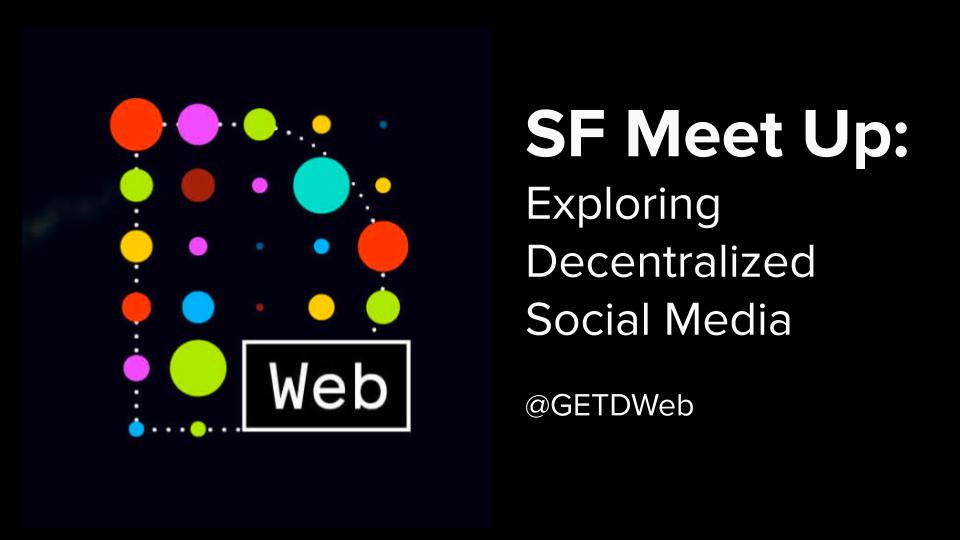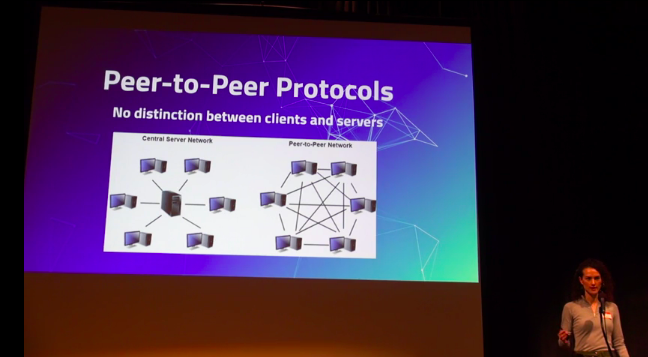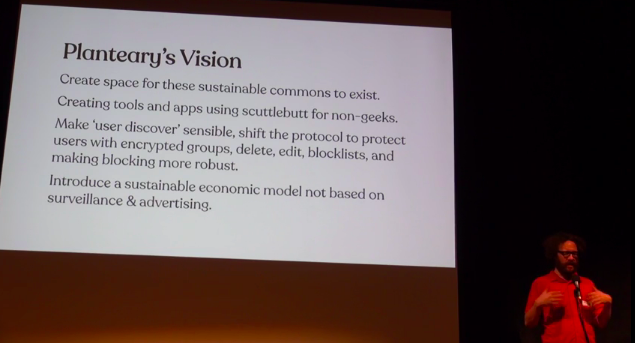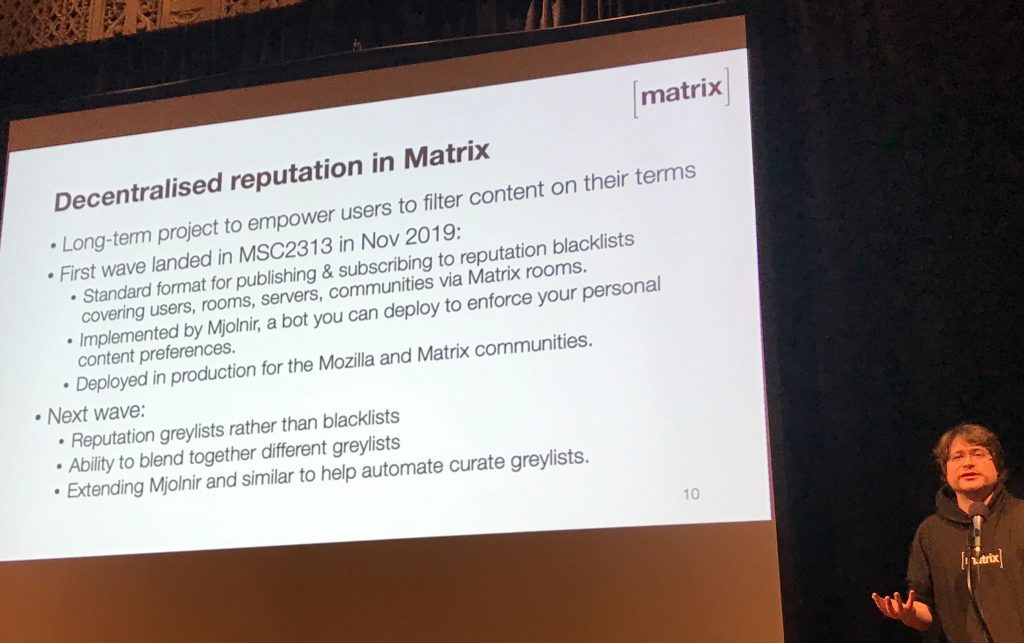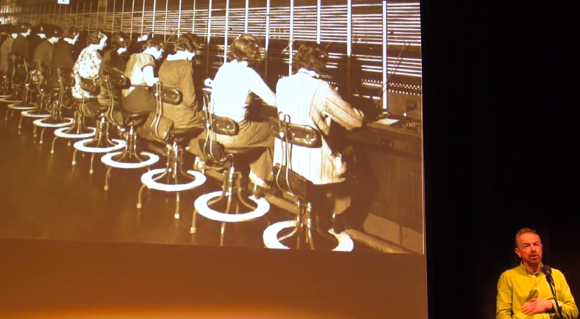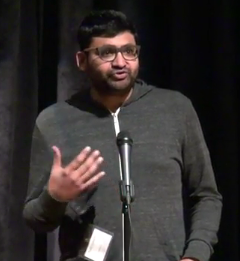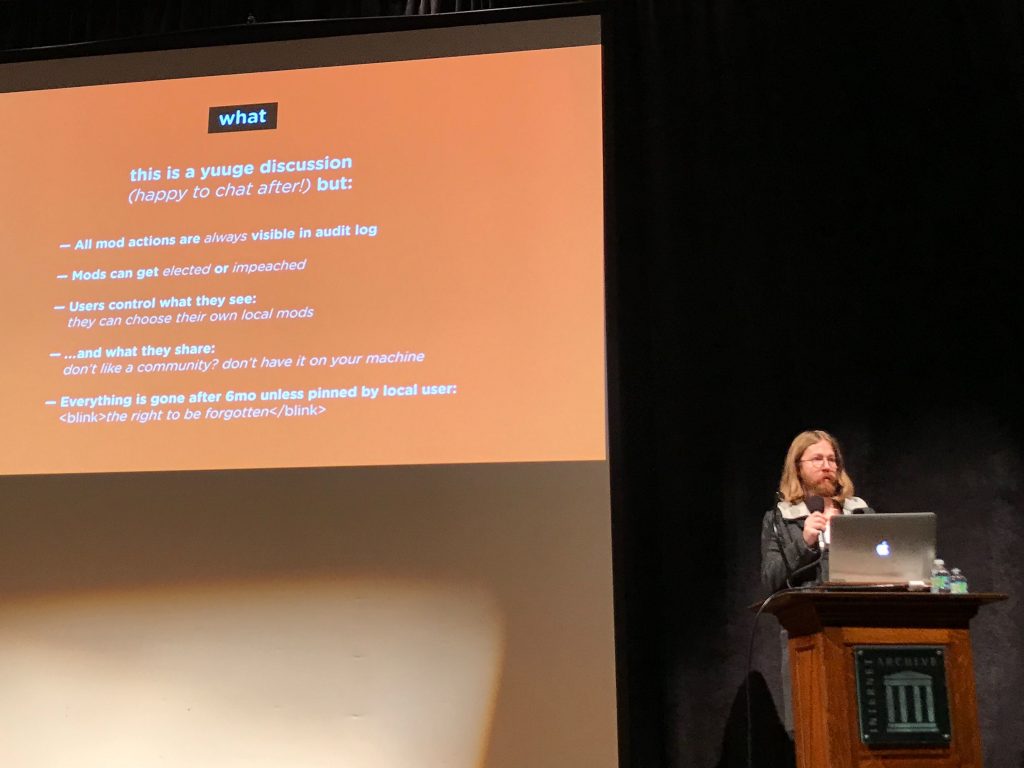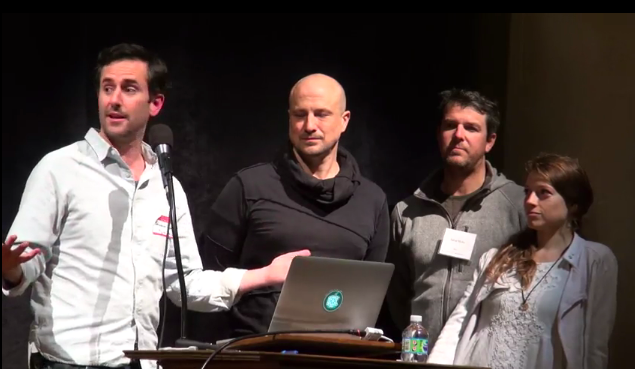“How Decentralized Identity Drives Privacy” with Internet Archive, Metro Library Council, and Library Futures
How many passwords do you have saved, and how many of them are controlled by a large, corporate platform instead of by you? Last month’s “Keeping your Personal Data Personal: How Decentralized Identity Drives Privacy” session started with that provocative question in order to illustrate the potential of this emerging technology.
Self-sovereign identity (SSI), defined as “an idea, a movement, and a decentralized approach for establishing trust online,” sits in the middle of the stack of technologies that makes up the decentralized internet. In the words of the Decentralized Identity Resource Guide written specifically for this session, “self-sovereign identity is a system where users themselves–and not centralized platforms or services like Google, Facebook, or LinkedIn–are in control and maintain ownership of their personal information.”
Research shows that the average American has more than 150 different accounts and passwords – a number that has likely skyrocketed since the start of the pandemic. In her presentation, Wendy Hanamura, Director of Partnerships at the Internet Archive, discussed the implications of “trading privacy and security for convenience.” Hanamura drew on her recent experience at SXSW, which bundled her personal data, including medical and vaccine data, into an insecure QR code used by a corporate sponsor to verify her as a participant. In contrast, Hanamura says that the twenty-year old concept of self-sovereign identity can disaggregate these services from corporations, empowering people to be in better control of their own data and identity through principles like control, access, transparency, and consent. While self-sovereign identity presents incredible promise as a concept, it also raises fascinating technical questions around verification and management.
For Kaliya “Identity Woman” Young, her interest in identity comes from networks of global ecology and information technology, which she has been part of for more than twenty years. In 2000, when the Internet was still nascent, she joined with a community to ask: “How can this technology best serve people, organizations, and the planet?” Underlying her work is the strong belief that people should have the right to control their own online identity with the maximum amount of flexibility and access. Using a real life example, Young compared self-sovereign identity to a physical wallet. Like a wallet, self-sovereign identity puts users in control of what they share, and when, with no centralized ability for an issuer to tell when the pieces of information within the wallet is presented.
In contrast, the modern internet operates with a series of centralized identifiers like ICANN or IANA for domain names and IP addresses and corporate private namespaces like Google and Facebook. Young’s research and work decentralizes this way of transmitting information through “signed portable proofs,” which come from a variety of sources rather than one centralized source. These proofs are also called verifiable credentials and have metadata, the claim itself, and a digital signature embedded for validation. All of these pieces come together in a digital wallet, verified by a digital identifier that is unique to a person. Utilizing cryptography, these identifiers would be validated by digital identity documents and registries. In this scenario, organizations like InCommon, an access management service, or even a professional licensing organization like the American Library Association can maintain lists of institutions that would be able to verify the identity or organizational affiliation of an identifier. In the end, Young emphasized a message of empowerment – in her work, self-sovereign identity is about “innovating protocols to represent people in the digital realm in ways that empower them and that they control.”
Next, librarian Lambert Heller of Technische Bibliothek and Irene Adamski of the Berlin-based SSI firm Jolocom discussed and demonstrated their work in creating self-sovereign identity for academic conferences on a new platform called Condidi. This tool allows people running academic events to have a platform that issues digital credentials of attendance in a decentralized system. Utilizing open source and decentralized software, this system minimizes the amount of personal information that attendees need to give over to organizers while still allowing participants to track and log records of their attendance. For libraries, this kind of system is crucial – new systems like Condidi help libraries protect user privacy and open up platform innovation.
Self-sovereign identity also utilizes a new tool called a “smart wallet,” which holds one’s credentials and is controlled by the user. For example, at a conference, a user might want to tell the organizer that she is of age, but not share any other information about herself. A demo of Jolocom’s system demonstrated how this system could work. In the demo, Irene showed how a wallet could allow a person to share just the information she wants through encrypted keys in a conference situation. Jolocom also allows people to verify credentials using an encrypted wallet. According to Adamski, the best part of self sovereign identity is that “you don’t have to share if you don’t want to.” This way, “I am in control of my data.”
To conclude, Heller discussed a recent movement in Europe called “Stop Tracking Science.” To combat publishing oligopolies and data analytics companies, a group of academics have come together to create scholar-led infrastructure. As Heller says, in the current environment, “Your journal is reading you,” which is a terrifying thought about scholarly communications.
These academics are hoping to move toward shared responsibility and open, decentralized infrastructure using the major building blocks that already exist. One example of how academia is already decentralized is through PIDs, or persistent identifiers, which are already widely used through systems like ORCID. According to Heller, these PIDs are “part of the commons” and can be shared in a consistent, open manner across systems, which could be used in a decentralized manner for personal identity rather than a centralized one. To conclude, Heller said, “There is no technical fix for social issues. We need to come up with a model for how trust works in research infrastructure.”
It is clear that self-sovereign identity holds great promise as part of a movement for technology that is privacy-respecting, open, transparent, and empowering. In this future, it will be possible to have a verified identity that is held by you, not by a big corporation – the vision that we are setting out to achieve. Want to help us get there?
Join us at the next events hosted by METRO Library Council, Internet Archive, and Library Futures. https://metro.org/decentralizedweb
Links Shared
Links shared:
Resource guide for this session: https://archive.org/details/resource-guide-session-03-decentralized-identity
All resource guides: https://metro.org/DWebResourceGuides
Decentralized ORCID: https://whoisthis.wtf
Internet Identity Workshop: https://internetidentityworkshop.com/
Jolocom: https://jolocom.io/
Condidi: https://labs.tib.eu/info/en/project/condidi/
TruAge: https://www.convenience.org/TruAge/Home
DIACC Trust Framework: https://diacc.ca/trust-framework/
PCTF-CCP https://canada-ca.github.io/PCTF-CCP
TruAge Digital ID Verification Solution: https://www.convenience.org/Media/Daily/2021/May/11/2-TruAgeTM-Digital-ID-Verification-Solution_NACS
NuData Security: https://nudatasecurity.com/passive-biometrics/
Kaliya Young’s Book, Domains of Identity: https://identitywoman.net/wp-content/uploads/Domains-of-Identity-Highlights.pdf
